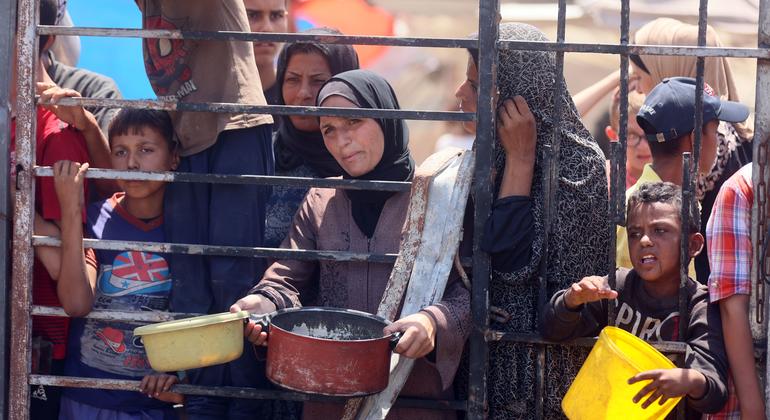Here’s the translation into American English:
Humanitarian workers in Gaza, including nurses and doctors, are facing extreme conditions of vulnerability and hunger, according to a report from the UN Agency for Palestine Refugees (UNRWA). Philippe Lazzarini, the UNRWA Commissioner-General, has described the situation as critical, labeling it a “post-apocalyptic environment” where children die in silence while others beg to escape the hell surrounding them.
Lazzarini has emphasized that many minors in Gaza believe death could be preferable, as in the afterlife they might find food—something that is scarce in their daily reality. Desperation is reflected in constant pleas for help, revealing an overwhelming sense of powerlessness in the face of the suffering of a civilian population trapped in conflict, facing the horror of being literally starved to death.
An UNRWA worker, Manar, shared the devastating impact of this crisis on the daily lives of Gazans. She lives with the constant fear of new bombings and the anguish of not having enough food or water for her children. “We go to bed with empty stomachs,” she lamented, encapsulating the pain of countless families struggling to survive.
Since May, nearly 1,500 Gazans have lost their lives in their search for food, according to the Office for the Coordination of Humanitarian Affairs (OCHA). Since the conflict began on October 7, about 2.1 million Palestinians remain under siege, with UN agencies warning of the imminent threat of famine.
Despite international efforts to alleviate the crisis, such as aerial drops of essential supplies authorized by Israel at times, many critics argue that these measures are insufficient. Humanitarian agencies have urged that ground aid be prioritized, as thousands of supply trucks remain stuck, waiting to enter Gaza.
In addition to the suffering of the civilian population, international concern is mounting following the release of videos showing Israeli hostages in deplorable conditions. This has sparked new urgent calls to facilitate the entry of humanitarian aid into the region as the crisis continues to intensify.
Referrer: MiMub in Spanish











